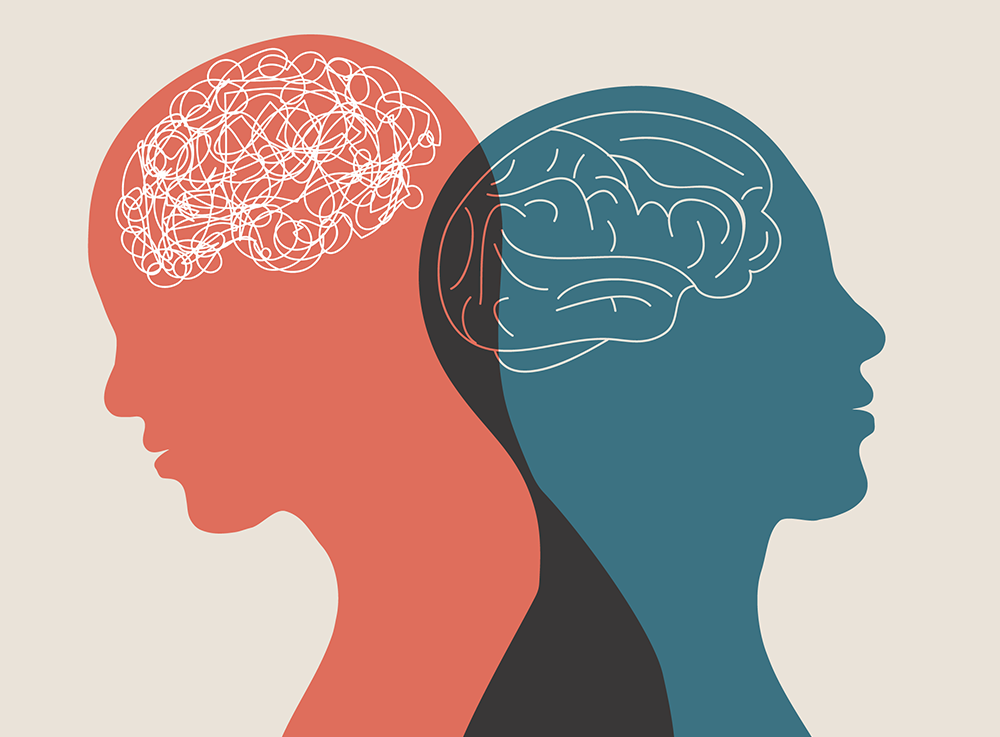Feature
Obstacles to Mental Health Care
Depression, anxiety and burnout among nurses skyrocketed during the pandemic. Getting help is not always so easy.

The Fall of 2020 wasn’t the first time I’d sought professional mental health support, but it was undoubtedly the most urgent. As the pandemic surged through our nation and the ICU where I worked became overwhelmed with COVID-19 patients, anxiety, insomnia and hopelessness were my dark shadows. I was burned out and needed help immediately.
Though I was initially optimistic about finding a qualified therapist, my confidence sank as I encountered one hurdle after another: Their schedules were full, the waitlists were long or their skill sets didn’t match my needs (trauma-informed, competent in treating moral injury).
It took months and a few unsuccessful sessions before I found a therapist who met most of my criteria. Unfortunately, she was not an “in-network” provider under my insurance plan, and the out-of-pocket cost was prohibitive.
My experience isn’t unique.
Nurses everywhere have encountered similar frustration and disappointment while seeking relief from the emotional and physical exhaustion brought on by working through an international crisis. Rates of anxiety and depression in the U.S. have tripled over the last two years.
By some estimates, up to 40 percent of healthcare professionals will experience post-traumatic stress following the pandemic. Severe burnout among nurses has more than doubled.
More than ever, nurses need access to comprehensive, effective mental health care. Unfortunately, this seems harder than ever to obtain, and even when services are available, they’re not necessarily used by those who most urgently need them.
Common Obstacles
There are many factors that can keep nurses from accessing the help they need. Here are some of the most common:
Stigma
The stigmatization of mental health disorders (including self-stigmatization) is a powerful deterrent to seeking help, particularly in nursing. Some of us buy into the misconception that self-care takes away from our ability to care for others. We avoid or deny our issues, and our shame and embarrassment prevent us from admitting that we can’t do it alone.
The truth is that nurses are not immune to mental illness, substance use disorder or suicidal ideation. Thanks to the pandemic, we are more likely than the general population to suffer these conditions.
Destigmatization demands that we normalize conversations about mental health, advocate for ourselves and share our collective experience of stress and the need for support.
Managers and supervisors can also help to decrease stigma by educating staff and by promoting and participating in self-care. When leaders role-model adaptive coping skills, it sends a powerful message to employees: that mental wellness is of utmost import, and no one is above needing help.
Fear of losing a job or licensure
Nurses often avoid acknowledging their problems or seeking help out of fear of suffering professional consequences.
For example, while most healthcare organizations offer some form of an employee assistance program (EAP) that provides free access to counseling, legal assistance and financial advice, among other benefits, research suggests that fewer than 10 percent of employees across the U.S. use these programs, often for fear that sensitive, confidential information may be disclosed to their employers.



